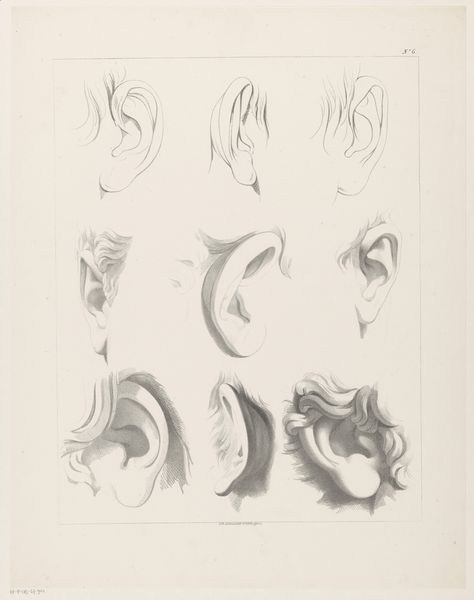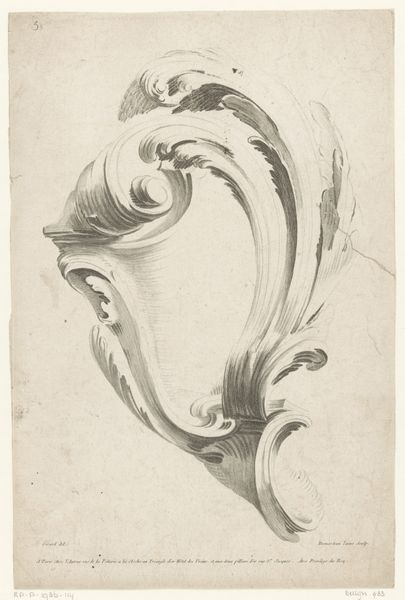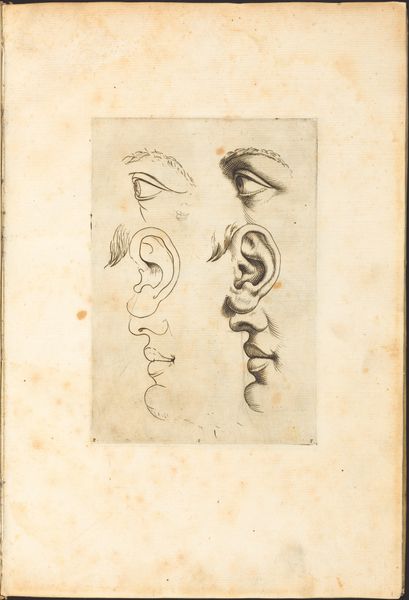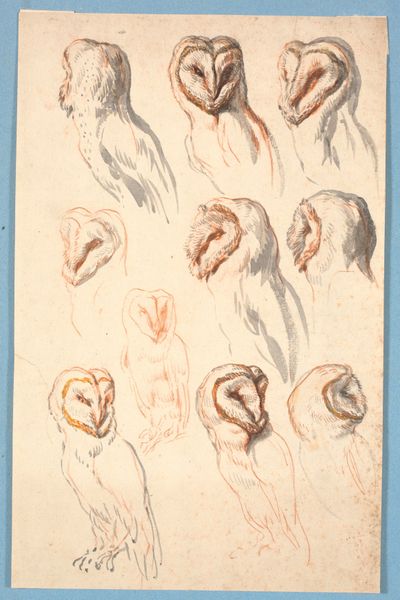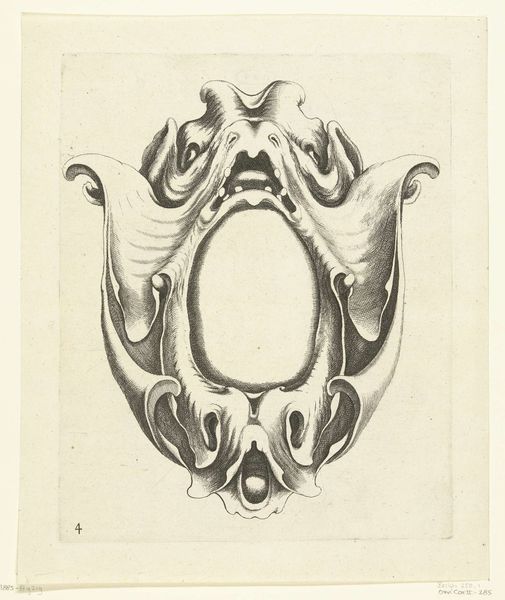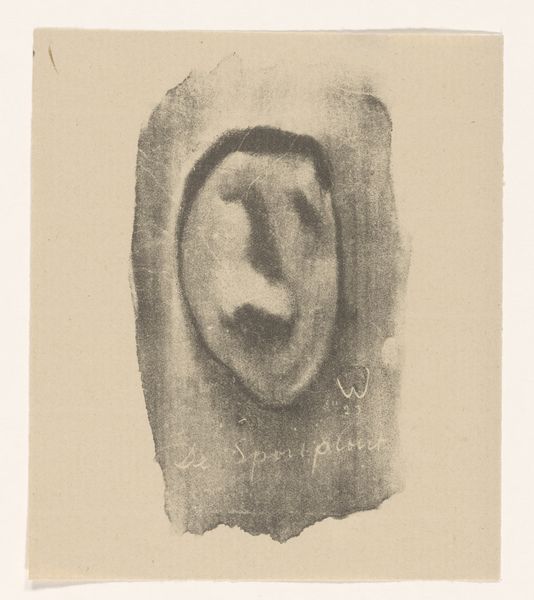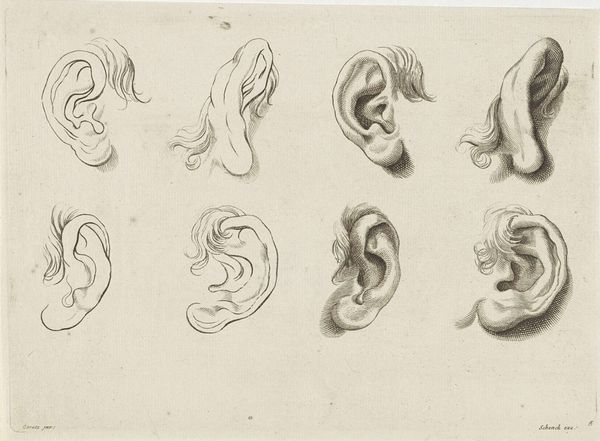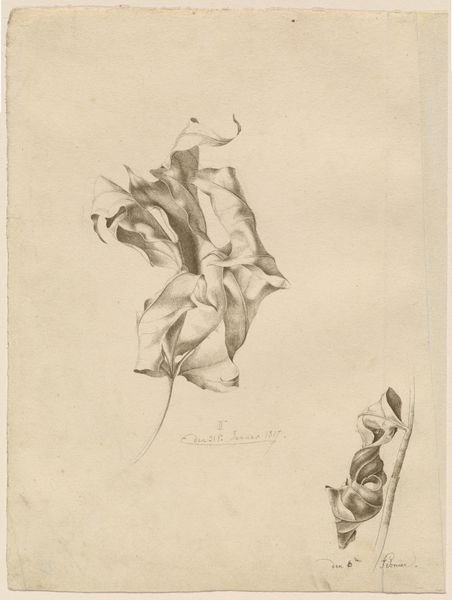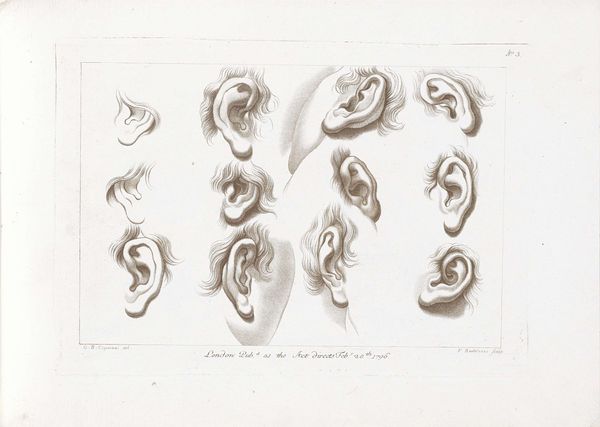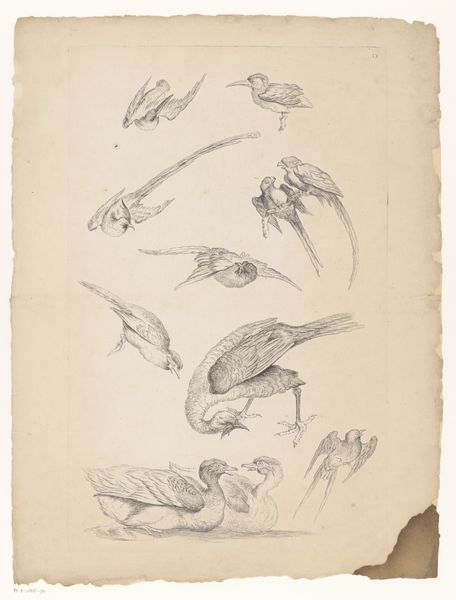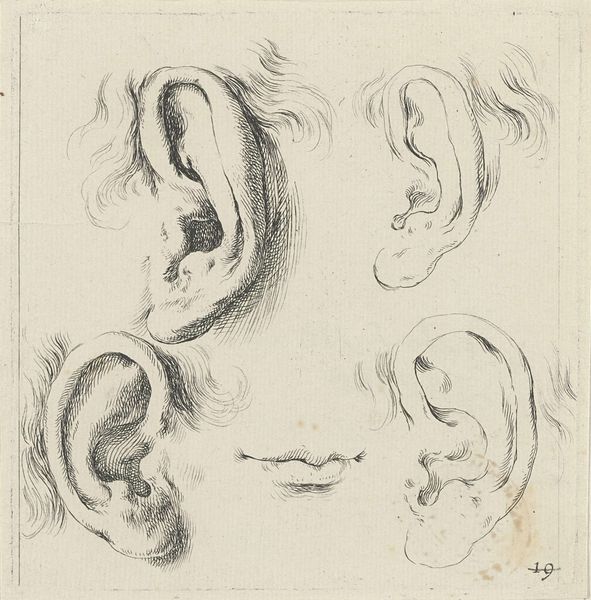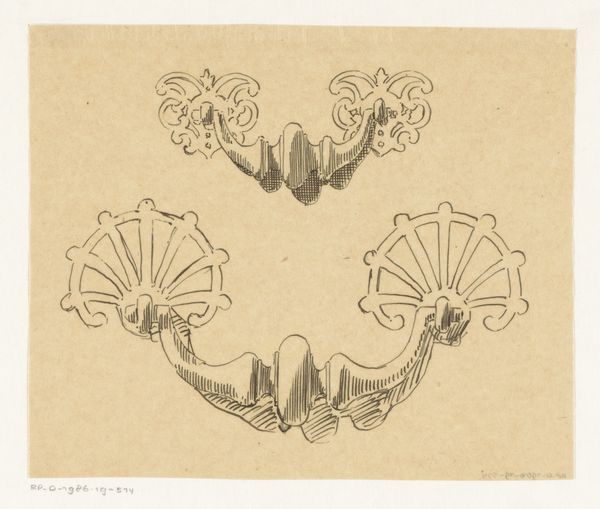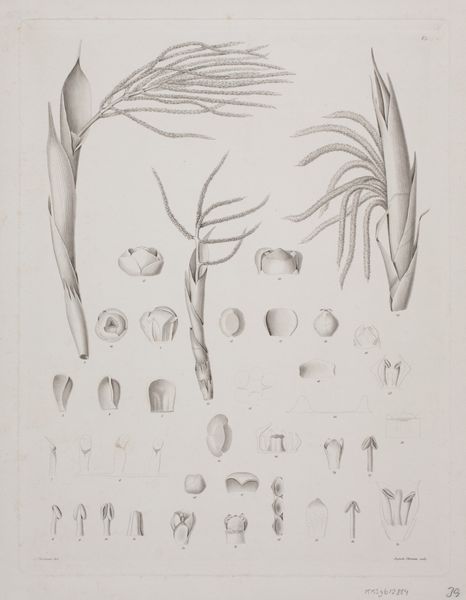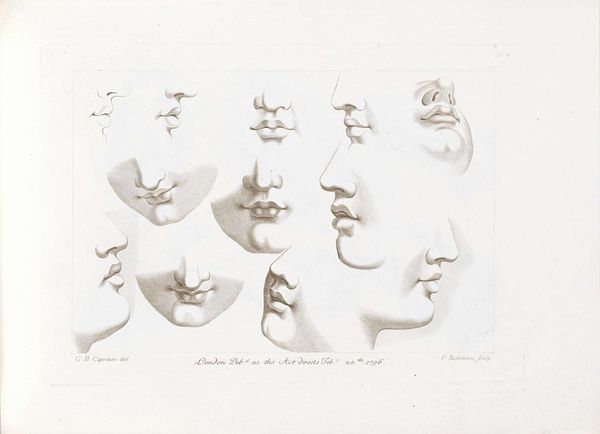
drawing, pencil
#
portrait
#
drawing
#
pencil sketch
#
romanticism
#
pencil
#
sketchbook drawing
#
pencil work
#
academic-art
#
realism
Dimensions: height 488 mm, width 322 mm
Copyright: Rijks Museum: Open Domain
Curator: This drawing is titled "Six Studies of Ears in Various Stages of Drawing" by Bernard Romain Julien, made between 1836 and 1843. It is currently held at the Rijksmuseum. Editor: There's something quite intriguing about the composition here; the isolated studies, the stark paper… it feels very clinical, almost anatomical in its detachment. Curator: Yes, and Julien’s use of pencil is quite masterful. Note the delicate hatching and the strategic placement of shadows. This careful orchestration emphasizes the depth and volume of each ear, moving beyond mere representation toward idealized forms. Editor: Speaking of pencil, think about the sheer repetition, the labor involved in these exercises. He must have gone through a great deal of graphite and paper! This act of continuous redrawing almost ritualistically drills a specific skill, showing the tangible effort required to master artistic skills. It suggests artistic skill doesn’t spring from innate talent, but rather constant, painstaking practice. Curator: Indeed. What resonates with me is the underlying structure – a grid almost – and how each ear interacts within its own defined space on the page. Semiotically, the ears are not just anatomical studies, but individual symbols, markers within Julien's visual language. Editor: And that makes you wonder where the discarded attempts went? How much paper was wasted in achieving these near-perfect sketches. This speaks to the economics of art practice, what materials were readily available, and the studio processes involved in producing just one ‘acceptable’ study. Curator: True. But ultimately, I’m captivated by the formal rigor Julien displays, stripping the ear—a mere detail, really—of all extraneous elements, pushing us to recognize and appreciate its inherent structural beauty. Editor: It also encourages us to consider art from the perspective of skill and accessibility, questioning who historically had the resources, and indeed the right, to make art.
Comments
No comments
Be the first to comment and join the conversation on the ultimate creative platform.
